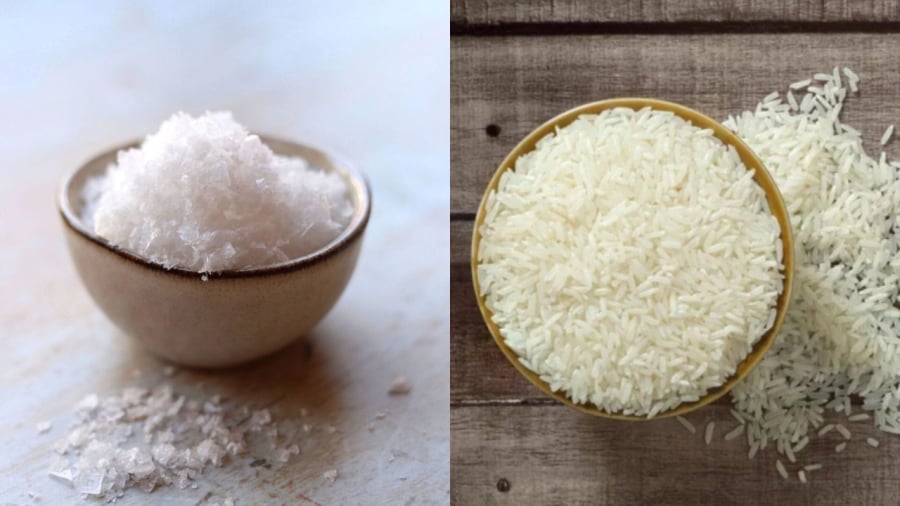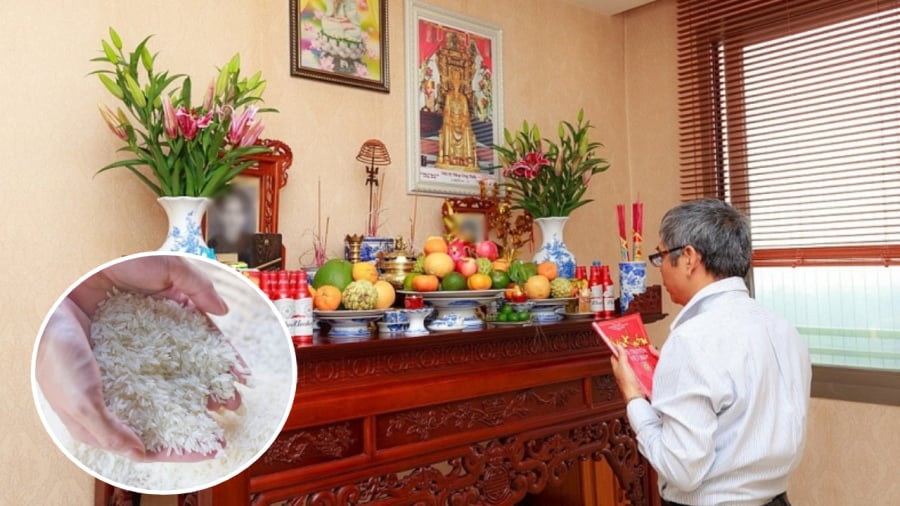When to Offer Rice and Salt as Religious Offerings
Rice and salt are two essential items commonly found on Vietnamese altars and offered during family rituals. They are also prepared in small bags and given to visitors as blessings during festive occasions at temples and shrines.
Rice has been revered as a precious grain, often referred to as a ‘gem’ or ‘golden kernel’. It is a staple offering to ancestors and deities, and various dishes made from rice are prepared as ceremonial food. Salt, on the other hand, is a refined gift from the ocean, a natural blessing with powerful properties in feng shui for dispelling bad luck and attracting prosperity.
Offering salt and rice is believed to bring good health, fortune, and prosperity while dispelling negative energies. It is a way of showing reverence to the divine and ancestral spirits, seeking their blessings and protection.

Rice and salt are integral parts of Vietnamese spiritual practices, and many also place jars of rice and salt on their altars as a sign of devotion and to invite good fortune.
In the context of Vietnam’s rice-based agriculture, both rice and salt are indispensable, providing essential nutrients and featuring in daily meals.
When making offerings on the ancestral altar, families include rice and salt along with fresh flowers, candles, clean water, and votive paper, as a sign of respect and gratitude to their forebears. This practice also embodies the virtue of “remembering the source when drinking water,” a profound expression of filial piety.
The act of offering rice and salt also extends gratitude to the Earth Gods and ancestral spirits. It is believed that these offerings help to appease the hungry ghosts and prevent them from causing disturbances in the household.
Rice and salt offerings are commonly made on Vietnamese altars, during festive occasions, and as part of rituals at temples and shrines. They are also placed on altars dedicated to Buddha, the God of Wealth, and family ancestors.
How to Dispose of Offered Rice and Salt

Depending on the occasion and type of offering, there are different ways to dispose of the offered rice and salt respectfully.
For the rice and salt kept in jars on the altar, it is advisable to replace them once a month. The rice and salt from the jars can be consumed by the family. However, instead of emptying the jars completely, only half of the contents should be removed, and then refilled with fresh rice and salt.
As for the rice and salt offered during rituals, especially during ceremonies for the wandering souls, it is customary to scatter them in multiple directions in front of the altar or in the courtyard to feed the hungry ghosts and prevent them from lingering in the house.
Rice and salt received as blessings from temples and shrines can be kept in the house, as they are believed to bring good luck and fortune.
This information is for reference only and is subject to individual beliefs and interpretations.






























